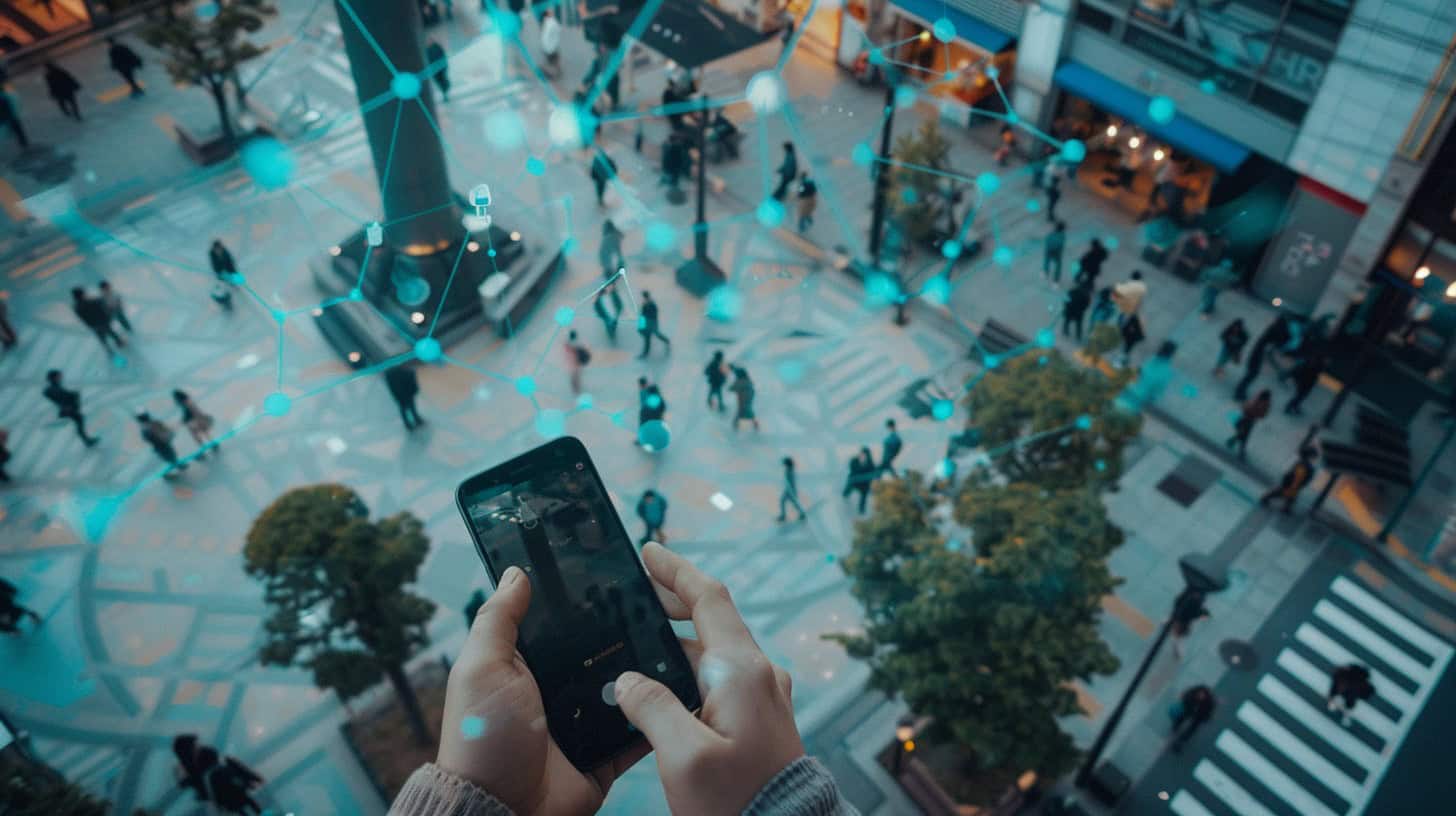Worrying about online privacy is common today. A fact: using a VPN on your phone can increase your internet security. This article explains six reasons why you need a VPN, making the web safer and more open for you.
Keep reading to discover how.
Key Takeaways
A VPN keeps your internet actions private by sending data through a safe tunnel. This means no one can see what you do online. It’s like having a secret path that only you know about.
Using a VPN on your phone lets you access shows, games, and websites from anywhere in the world. Even if some content is blocked in your country, a VPN can help you see it.
When you’re using public Wi-Fi, like at cafés or airports, a VPN protects your personal info by making sure everything you send and receive is encrypted. This stops hackers from stealing your data.
Some people worry that having a VPN will make their internet slow or get them in trouble with the law. But choosing the right VPN means fast internet and knowing how to use it without breaking rules.
Installing a VPN on your phone doesn’t have to be hard. You pick one from the app store, download it, log in, and connect to a server. Now your internet use is safer and more private.
Table of Contents
Exploring VPNs for Mobile Devices
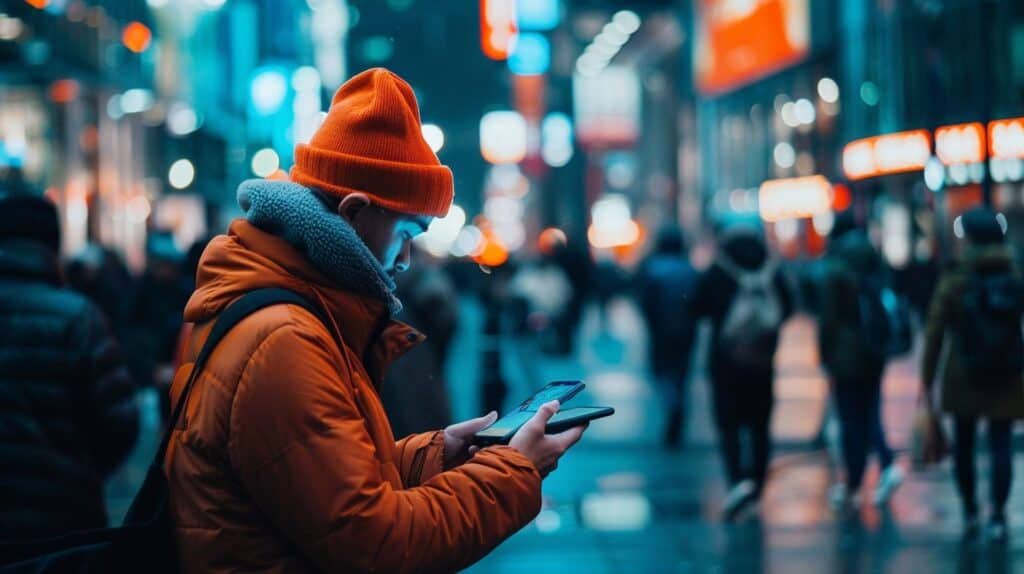
A VPN turns your phone’s internet journey into a secret mission. Think of it as a special tunnel for your data, no one can peek inside.
Defining a VPN
A VPN, short for Virtual Private Network, acts like a secret tunnel for your internet data. It keeps your online actions private by sending your web traffic through an encrypted path from your phone to a remote server.
This secure connection makes sure only you and the intended receiver can see what you’re doing online. I’ve used services such as PIA VPN on my smartphone. It felt like having a bodyguard for my data every time I connected to the internet.
VPNs turn public networks into private networks using heavy-duty encryption protocols like OpenVPN and WireGuard. These are big names in security that make sure no one can just peek at your information.
My experience with NordLynx—a version of WireGuard—showed me fast speeds without sacrificing safety or privacy when I browsed, streamed content, or checked my inbox on public Wi-Fi.
Mechanisms of VPNs on Smartphones
VPNs on smartphones work by creating a secure tunnel between your phone and the internet. This tunnel encrypts all data that passes through, keeping your online activities private.
Think of it as a protective shield around your internet connection, making it hard for others to see what you’re doing or grab your personal info. The process kicks off with your smartphone connecting to a VPN server, which could be anywhere in the world.
From there, the server steps in as sort of an intermediary—when you access websites or use apps, they interact with this server rather than directly with your phone.
I’ve used PIA and ExpressVPN on my Android device while traveling and can confirm the ease of switching IP addresses to access content back home or from other countries. These premium VPN services offer advanced security protocols like NordLynx and Lightway, designed specifically for speed without compromising security.
With one tap, these VPN apps secure my connection—even over unsecured Wi-Fi networks at airports or cafés—by rerouting my traffic through their servers. They effectively mask my real location and encrypt everything from web browsing to streaming video platforms, ensuring no prying eyes can track my digital footprint.
Key Benefits of Using a VPN on Your Phone
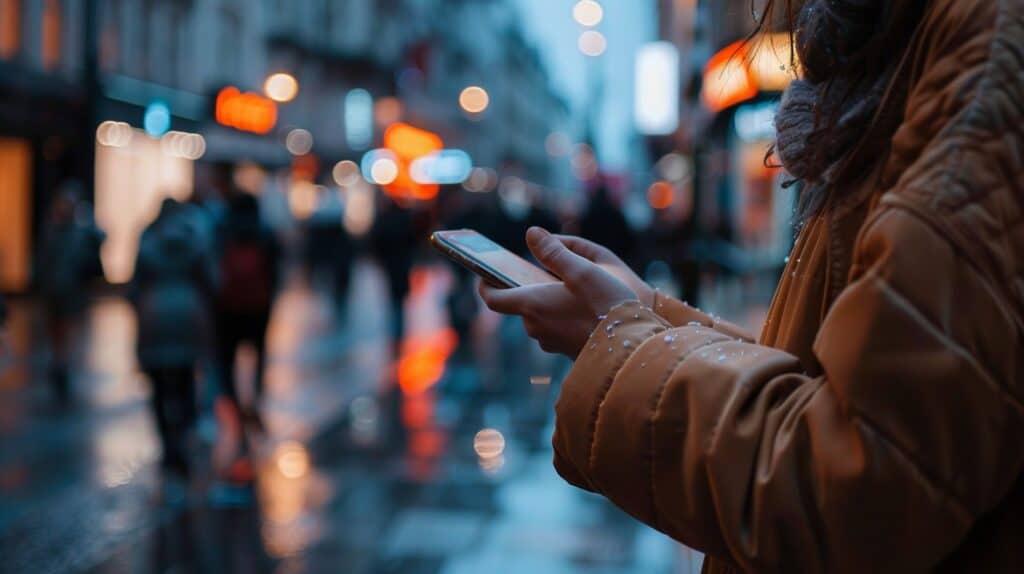
Using a VPN on your phone guards your online moves by hiding who you are and where you go. It lets you open doors to shows, games, and sites from around the world that you couldn’t see before.
Enhance Privacy and Anonymity
A VPN turns your web activities invisible. It hides you from ISPs, advertisers, and nosy trackers. Your internet steps vanish—like using a cloak of invisibility online. This means searching, streaming content, or browsing social media without eyes on you.
I used a mobile VPN to browse the web and stream movies without my ISP knowing. Before, ads would match my searches exactly—it was creepy. Now, with encrypted data through servers around the world, my location and actions stay private.
No more tailored ads or throttled speeds because I choose privacy over convenience every time.
Secure Connections on Public Wi-Fi
Moving from privacy to security, using a VPN on your phone protects you on public Wi-Fi. Public networks are open doors for hackers to steal private data. A VPN acts as a shield, encrypting your internet activities.
This makes it hard for others to snoop or intercept what you’re doing online.
Public places like cafés and airports offer free Wi-Fi, tempting to use for shopping or checking emails. Without a VPN, your actions and information are easy targets. Securing connections with a VPN means safe online banking and browsing wherever you go.
A secured connection is not just an option; it’s a necessity in today’s digital playground.
Unlock Geo-Restricted Content
A VPN makes it easy to access shows and games only available in some countries. For example, I used a VPN app on my phone and could watch sports that were blocked in my area. It tricks sites like Netflix into thinking you’re watching from somewhere else by changing your location.
This way, you can enjoy content locked behind regional restrictions.
This tool also lets you bypass censorship in places where the internet is tightly controlled. Think about traveling and still catching up with your favorite series or staying updated with news from home—all possible through a VPN on your phone.
It changes your IP address to one from the desired country, ensuring you get full access, no matter where you are in the world.
Secure Online Transactions
Buying online needs safety. VPNs encrypt data, keeping credit card info safe. On my phone, I use one for all shopping. It hides my actions from spies and thieves. This way, banks and stores see only the encrypted version of what I send them.
VPNs also check websites for bad stuff like malware or scams. They block harmful content before it can do damage. Secure servers turn personal details into codes that only the right receiver can understand.
Now, let’s move on to busting some common myths about mobile VPNs.
Common Misconceptions About Mobile VPNs
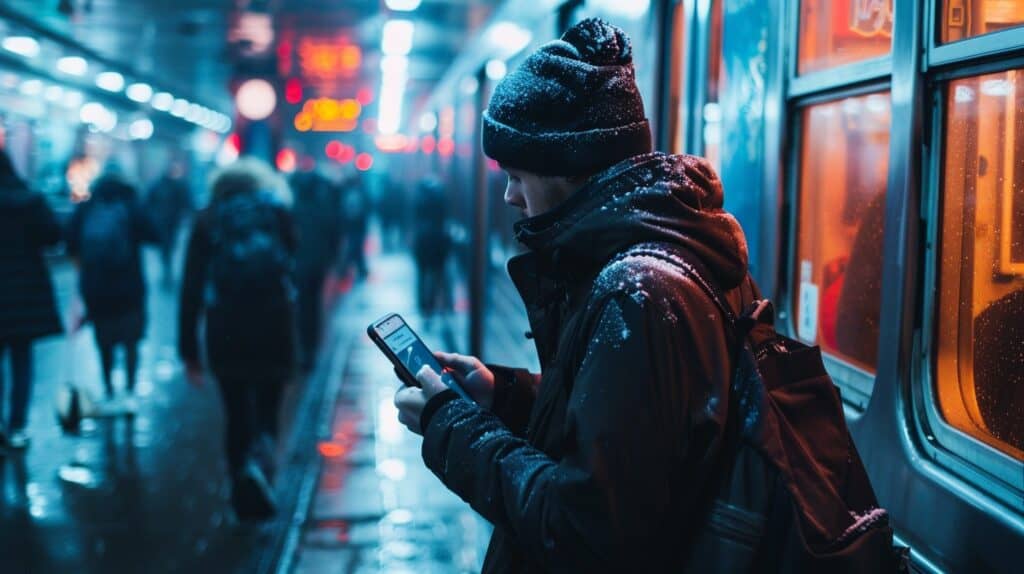
Many think a VPN can slow down your internet or hide you completely online. Want to learn the real deal? Keep reading.
VPNs and Internet Speed
VPNs can slow down your internet because they send your data on a longer trip. Premium VPNs, like Windscribe, fix this with fast servers around the world. They offer better speed and reliable connections.
Free VPNs might limit how much data you can use and not be as quick.
The right VPN doesn’t mean slower internet; it means finding one that balances speed and security.
VPNs and Total Anonymity
VPNs hide your internet steps from others. They replace your IP address so it looks like you’re browsing from a different place. This trick keeps your Internet Service Provider (ISP) and websites from knowing where you really are.
Even with this, total anonymity isn’t possible. People can still find out who you are in other ways.
A VPN also protects against spies and hackers on public Wi-Fi by encrypting what you send and receive. But remember, they need honest reports about their safety practices to be trusted.
Just know that no technology gives complete cover—they help keep eyes off, but can’t make you invisible online.
Selecting the Right VPN for Your Mobile Device
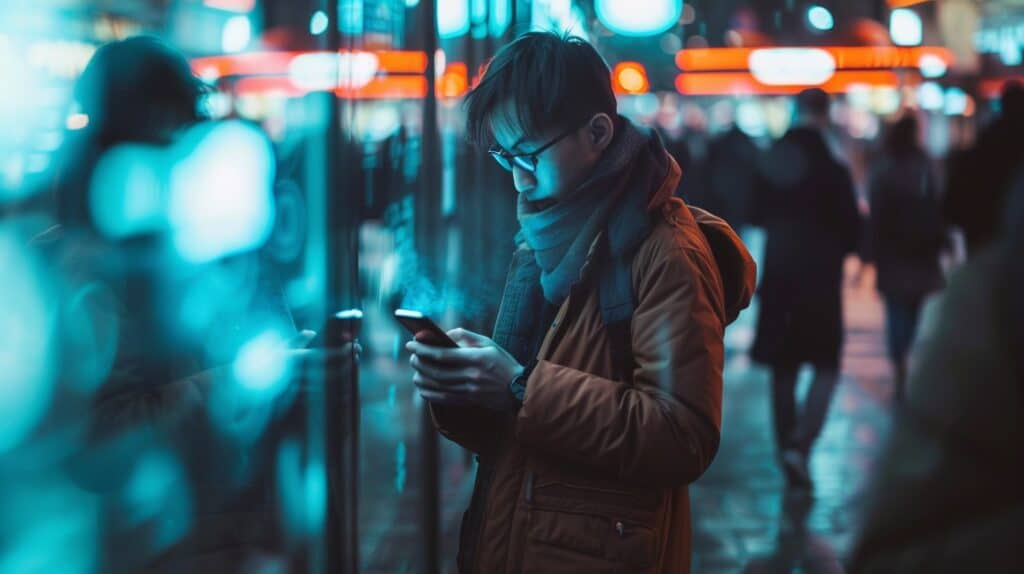
Picking the right VPN for your phone means looking at security, speed, and privacy features—think of ProtonVPN or apps like it from the Google Play Store. Keep reading to find your perfect match….
Criteria to Consider: Security, Speed, Privacy Features
Selecting the right VPN for your mobile device is crucial. It should meet your needs for security, speed, and privacy. Here are the things to focus on:
- Security is top priority. Look for a VPN with strong encryption methods, like AES-256. This ensures that your data stays safe. Premium VPNs often come with extra security features such as adware blockers and IPv6 leak protection.
- Speed matters too. A good VPN shouldn’t slow down your internet connection much. Check if the service has servers near you or in locations where you often access content from. This affects how fast websites and apps load.
- Consider privacy features carefully. Make sure the VPN has a strict no – logging policy. This means they don’t keep records of what you do online. Services like ProtonVPN are known for their strong privacy policies.
- Extra features can make a difference. Things like a kill switch, which cuts off internet access if the VPN drops, help keep your data secure at all times.
- The number of servers and locations offered by a VPN service impacts access to geo-blocked content and overall performance.
- Finally, evaluate ease of use and customer support options available with the service to ensure smooth operation on your Android phone or other devices.
After considering these criteria…
Top VPN Service Recommendations
After considering security, speed, and privacy features, the next step is picking the right VPN. Here’s a look at top VPNs for mobile devices, based on firsthand use and thorough reviews.
| VPN Service | Key Features | Free Trial | Cost |
|---|---|---|---|
| PIA | High speed, reliable | 7 days | $11.95/month or $39.96/year |
| CyberGhost VPN | Over 7,000 servers in 90 countries | 3 days | $10/month or $50/year |
| Surfshark VPN | CleanWeb, unlimited connections | 7 days | $52/year |
PIA offers unmatched speed and a reliable connection, ideal for streaming and browsing on the go. Its seven-day trial invites you to experience its capabilities, costing $11.95 monthly or $39.96 yearly. CyberGhost spans across 90 countries with over 7,000 servers, priced at $10 monthly or an annual fee of $50, following a three-day trial. Surfshark stands out with CleanWeb and allows unlimited devices under one account, offering a seven-day trial and an annual plan of $52. Each of these VPNs caters to the essential need for privacy, security, and unrestricted access on your mobile device, ensuring a tailored experience depending on your specific needs.
Setting Up a VPN on Your Phone
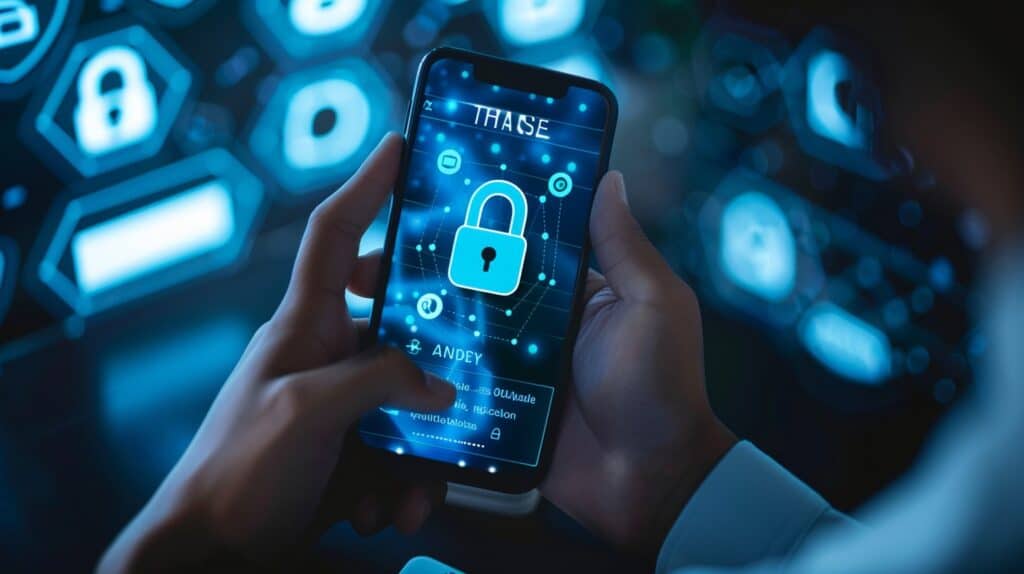
Putting a VPN on your phone is simple. Whether you have an Android or iOS device, the steps are easy to follow. First, choose a VPN app from the store. Then, download and open it. After that, sign in and pick a server to connect to.
Now, your internet actions are safer! This makes doing things online more private and secure for you. So why wait? Start using a VPN today and keep your mobile browsing safe and free from prying eyes.
Installation Guide for Android and iOS
Installing a VPN on your phone makes your online life safer and more private. Here’s how to do it for both Android and iOS devices.
- Choose a trusted VPN service like PIA, CyberGhost, Surfshark, AdGuard, or NordVPN. These services offer strong security features and reliable connections.
- For Android users, head to Google Play Store. Search for the VPN service you’ve chosen. iOS users should go to the App Store.
- Hit “Download” or “Get” next to the app’s name. Wait for the installation to complete.
- Open the app once installed. You may need to create an account or log in if you already have one.
- Follow the in – app instructions for setup. This often involves selecting a server location and adjusting any settings based on your preferences.
- Turn on the VPN service within the app. Look for a button that says “Connect” or something similar.
- The first time, your phone might ask permission for the VPN to add configurations or run in the background. Agree to this.
- Once connected, check if there’s a key icon (Android) or VPN label (iOS) at the top of your screen – it means you’re protected.
- To ensure everything works, try accessing a website that was previously geo-blocked or log into a public Wi-Fi network securely.
From personal experience, I recommend checking if your chosen VPN offers features like ad-blocking or anti-malware software for additional protection against phishing scams and malicious websites.
Also, look into whether they support protocols beyond basic ones like L2TP/IPSec and offer advanced privacy tools such as split tunneling, which lets you choose which apps go through the VPN.
Finally, make sure their customer support is responsive – helpful when you face any hitches during setup or use.
By following these steps accurately, installing a VPN on Android and iOS can be straightforward and quick, enhancing your internet freedom immediately with added layers of privacy and security on mobile devices.
Potential Downsides and Risks of Using a Mobile VPN
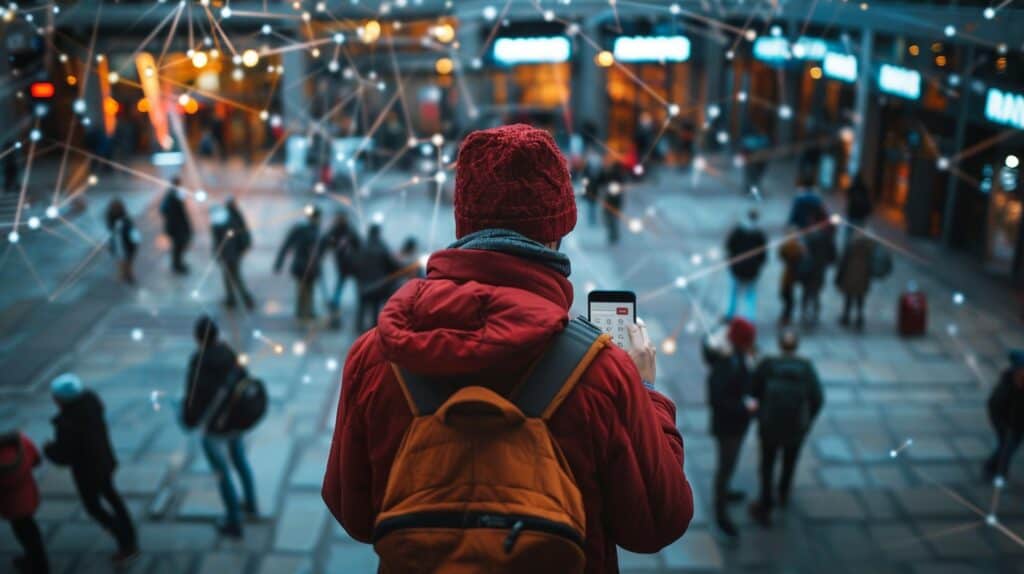
Using a mobile VPN might slow down your phone’s battery life. It could also bring up legal questions, depending on what you do online with it.
Effect on Battery Life
VPNs drain your phone’s battery faster. They need more power to encrypt and send data to servers. Some VPNs have modes that save battery life. Choose a VPN made for mobile devices to keep the battery strong.
A well-optimized VPN minimizes battery use, ensuring longer device usage.
Legal and Policy Issues
Switching from battery life concerns, we dive straight into the realm of legal and policy matters tied to VPN use. Some countries have strict rules against VPNs. This means using a VPN in such places can land you in hot water with the law.
I discovered this firsthand while trying to access geo-restricted content during my travels. It’s not just about breaking laws; it also involves violating service terms. Streaming platforms like BBC iPlayer may suspend your account if they catch you bypassing restrictions.
Security is another critical aspect. Despite common belief, VPN accounts are vulnerable to hacks too. Always set a strong password and enable two-factor authentication for an extra layer of security.
Beware, some providers might track and sell your data, harming your privacy more than protecting it. These issues make choosing the right provider crucial—opt for ones that respect user privacy by not keeping logs and offering robust security features like passcode lock or encrypted messaging capabilities.
